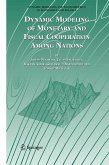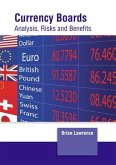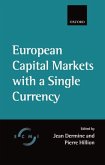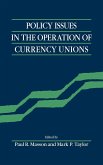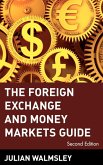"Currency Unions" reviews the traditional case for flexible exchange rates and "countercyclical"--that is, expansionary during recessions and contractionary in booms--monetary policy, and shows how flexible exchange rate regimes can better insulate the economy from such real disturbances as terms-of-trade shocks. The book also looks at the pitfalls of flexible exchange rates--and why fixed rates, particularly full dollarization--might be a more sensible choice for some emerging-market countries. The contributors also detail the factors that determine the optimal sizes of currency unions, explain how currency union greatly expands the volume of international trade among its members, and examine the recent implementation of dollarization in Ecuador.
Hinweis: Dieser Artikel kann nur an eine deutsche Lieferadresse ausgeliefert werden.
Hinweis: Dieser Artikel kann nur an eine deutsche Lieferadresse ausgeliefert werden.




